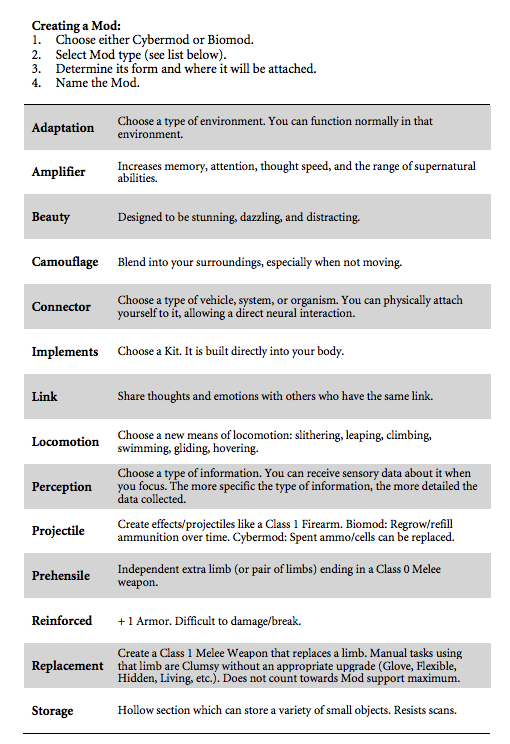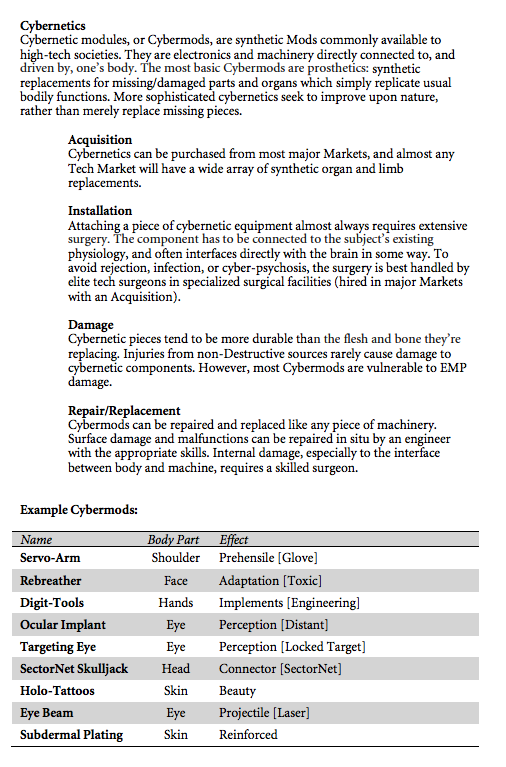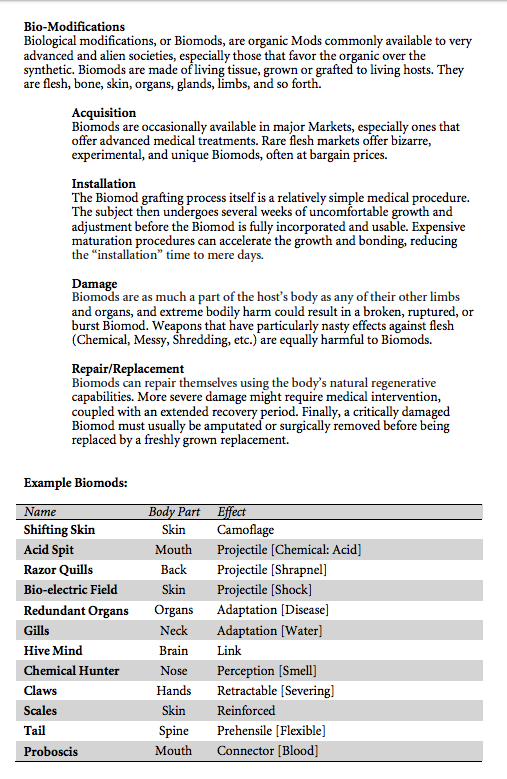page 120, append VEHICLE PARKING section with:
The Canary and the Gregor Samsa may share a single Cargo compartment.
Additional Rule: CLOSE UPS
A player can earn a Close Up. It’s a digital state, so you either have it or you don’t (you can’t have it twice), and you earn it for: making a great joke, doing something particularly clever or interesting, or a roleplaying decision that costs the character something. Your Close Up can be used to add +1 to any roll before it is made. You can give your Close Up to another PC before they make a roll.
page 162-163, supplement ADVANCEMENT section with:
LONG-TERM ADVANCEMENT
These new advancement rules are balanced for long-running campaigns, reducing skill-bloat and giving more options for spending XP in campaigns that last dozens of sessions.
Maximum 7 Skills
The rules for gaining new career skills are unchanged from the original rules: gaining a new skill costs an amount of experience equal to the number of skills the character currently has (including Origin and Career skills, plus any Species and/or Group skills). A character’s fifth skill would cost 4xp, the sixth would cost 5xp, and the seventh would cost 6xp.
However, a character can only have a maximum of 7 skills, including Origin, Species, Group, and Career. Any further XP earned can only be used to gain alternate advancements (For more information, see the following section). Characters can gain alternate advancements before they have reached their maximum number of skills.
Alternate Advancements
When a character has significant downtime, the player can spend XP to gain one of the alternate advancements listed below. The following rules apply:
XP can only be spent on a character during downtime that lasts at least a few days. Some advancements require more time than others, especially those that require “extended downtime”.
Only one advancement can be pursued at a time. Even if a character has accrued enough XP to purchase multiple advancements, they can only actively pursue a single one until the next downtime.
The chosen advancement should make narrative sense to the character and the current situation. Characters should avoid choosing advancements which would be nonsensical or impossible, such as trying to adopt a Primal lifestyle (Adapt) while on a space station.
Choosing a new Advancement Trigger
Once they have advanced their character, a player can choose to change their Advancement Trigger.
Unlike the base advancement rules, it is not necessary to choose a new Trigger each time the character advances. However, the player is strongly encouraged to reconsider their Advancement Triggers after certain major milestones or life changes (such as critical injuries, emotional turning points, story arc completion, changing careers with the Renounce advancement, etc.).
Alternate Advancements. Spend XP during downtime to choose an Advancement.
Research, 1 XP: Gain a Data point about the subject that you spent all your downtime studying, or about a topic related to your field of expertise.
Therapy, 2 XP: Ongoing physiotherapy/psychotherapy erases your current major debilities.
Relate, 3 XP: Choose an NPC who you frequent during the downtime, and describe your new closer personal or professional relationship. The NPC still has their own life.
Plan, 4 XP: Describe a goal, event, or act. The GM will provide you with a lead, the first step to accomplishing that goal. Example: Liberate Novanna station, find my parents, dismantle the smuggler network, start a criminal cartel, etc.
Acquit, 5 XP: Choose a Faction. You spend your downtime negotiating, mitigating, or obfuscating your outstanding Debts. Reduce your Debt to the chosen Faction by 1, to a minimum of 1.
Prosper, 6 XP: Your personal wealth has increased, improving your overall lifestyle. It remains to be seen whether you can maintain this new level of prosperity.
Establish, 7 XP: Choose a workspace from any Career. You establish, claim, or otherwise create that workspace, appropriate to the current setting (Starship room, Colony building, City business, etc.).
Refine, 8 XP: Choose a skill from one of your Careers to refocus your efforts. You may discard one of your Career skills (of any Career) and replace it with the chosen skill.
Adapt, 9 XP: After extended downtime immersed in a new way of life, you forego your Origin, and take on that way of life as your new Origin. You lose your old Origin skill, and choose a new one.
Renounce, 10 XP: Choose a Career. After extended downtime immersed in that trade, replace one of your current Careers with the new one. Name a new archetype. Replace any old Career skills with skills from the new Career.
page 75, add to CAREERS section:
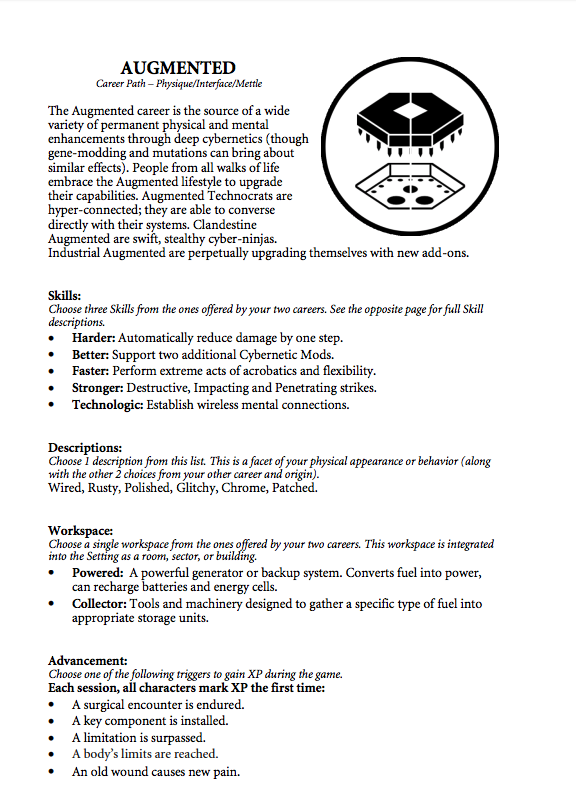
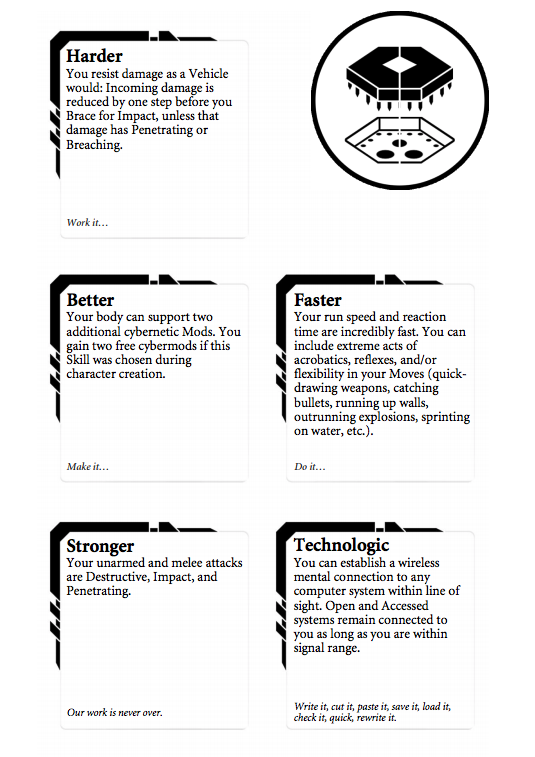
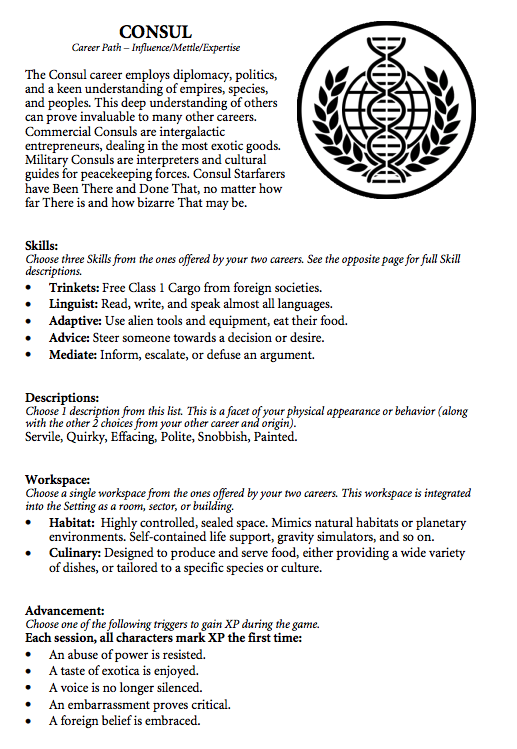
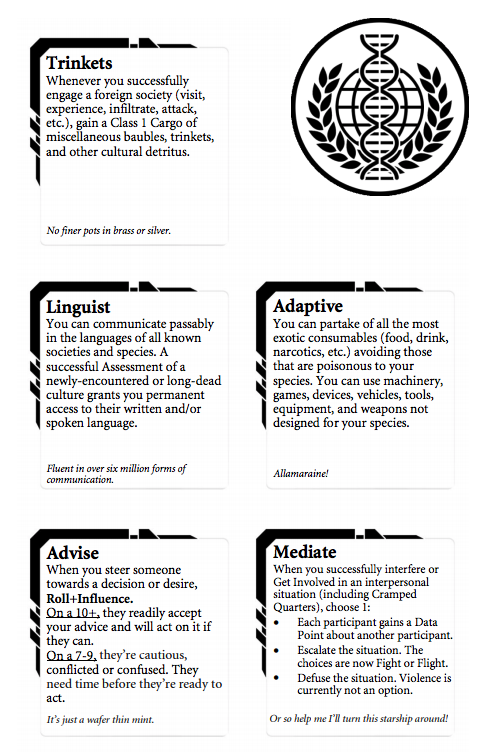
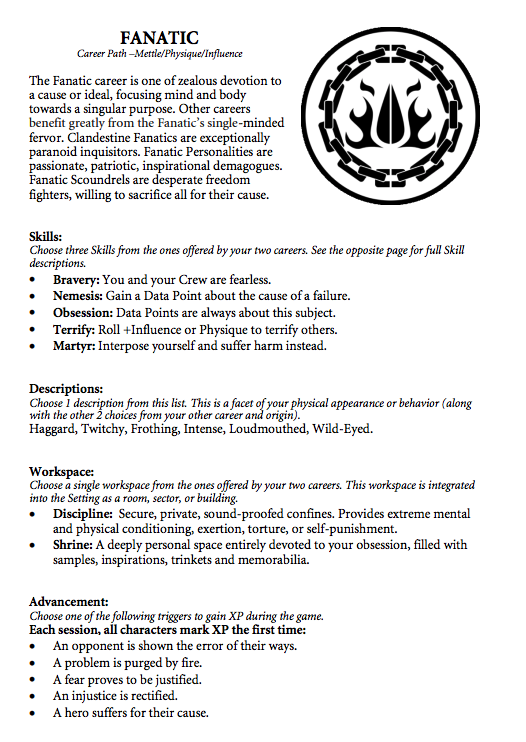
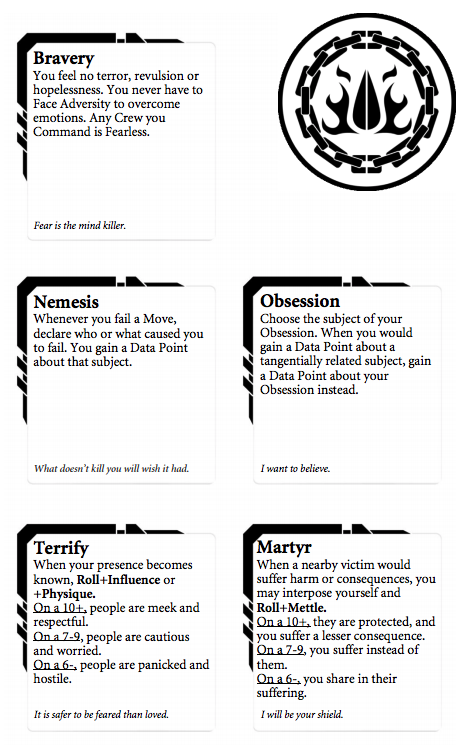
page 113, add to ASSET TYPES section:
Cybernetic Modules and Bio-modification (Mods)
As technologies advance, many species find themselves stunted not by their tools, minds, or determination, but by their own physical limitations. Cybernetics and Bio-modification (Mods) are two fields of research that seek to artificially enhance the individual and break through those limitations. Each Mod is designed to enhance a certain aspect of the subject, such as senses, resilience, multitasking, beauty, and so forth.
Mods are Class 1 Assets. Like all the Assets presented in Uncharted Worlds, Mods grant narrative tools to the characters (Uncharted Worlds core book, page 110). Unlike other Assets, Mods are relatively permanent and can’t be swapped out at a moment’s notice. On the other hand, they can’t easily be stolen or lost (without a lot of messy side-effects).
A character’s body can only support ONE Mod. Each additional Mod grants a permanent major Debility until removed.
page 127, add after CARGO section:
